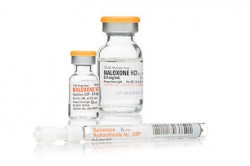Opiate Overdose Treatment Options
About Opiate Overdose
Opiates are highly addictive and have dangerous and intensely powerful effects on a person’s body. Opiates are depressants that are both natural and manmade drugs that derive from the poppy plant. When taken, opiates will block the pain sensors in a person’s brain resulting in the individual feeling little to no pain. When the drugs are abused many people experience a euphoric rush from the drug’s effect, which results in many people taking high quantities of the drug.
Opiate abuse can lead many hospitalizations and opiate overdose results in thousands of people’s deaths each year. According to the Center for Disease Control and Prevention, in 2008 there were 14,800 deaths from prescription painkiller overdoses and from 2004 to 2011 the number of emergency room visits to hospitals from Oxycodone overdoses increased by 220%.
A person can stop breathing while taking opiates because opiates depress a person’s respiratory track and nervous system. Opiate overdose can happen suddenly and some people do not even realize that they need medical attention due to the sedation they are experiencing from the effects of the drug. If an opiate overdose occurs, it is extremely important for a person to get medical treatment immediately so that they do not become unconscious or slip into a coma. Once medical treatment is received the physicians will attempt to get the drugs out of the patient’s body.
Opiate Overdose Treatment Options

Naloxone is used to treat opiate overdose.
Once an individual overdoses on opiates they must receive medical treatment to keep them from slipping in to a coma or from dying. If a person finds another person going through an opiate overdose the most important thing for them to do after calling 911, is to try and keep the individual awake.
Once a person is admitted into the emergency room for an opiate overdose the physician will need to stop the drug’s effects. The most common opiate overdose treatment option is to give a patient Naloxone. Naloxone is an opiate antagonist that works against opiates as it gets rid of the opiates from the opiate receptors and stops the opiates from coming back to the receptors.
Naloxone will basically rapidly detox a person from opiates, which can save their life but will cause them to go into opiate withdrawal if they have developed a dependency to the drug. If for some reason a person cannot take Naloxone the physicians may pump the person’s stomach to get rid of the drugs and they may also opt to put them on breathing machine so that they can continue receiving efficient amounts of oxygen if their respiratory system is not functioning properly.
There are treatment options available to people who overdose on opiates and there are numerous opiate rehabs available to people who need help in continuing to live a drug free life after surviving an opiate overdose.
 Opioid Overdose Symptoms, Response, and Treatment -
Knowing the signs and how to respond to an opioid overdose can save someone's life.
Opioid Overdose Symptoms, Response, and Treatment -
Knowing the signs and how to respond to an opioid overdose can save someone's life.  How Overdose Risks Increase with Opiate Tolerance -
Opiate tolerance develops as a result of drug abuse. Once a person develops a tolerance to their prescribed opiate, they are at risk for overdose.
How Overdose Risks Increase with Opiate Tolerance -
Opiate tolerance develops as a result of drug abuse. Once a person develops a tolerance to their prescribed opiate, they are at risk for overdose.  Signs and Symptoms of Opiate Overdose -
Opiate abuse is dangerous, and can easily lead to overdose. Respiratory and cardiac functions are often impacted first, and signs include trouble breathing, dizziness, numbness, and nausea.
Signs and Symptoms of Opiate Overdose -
Opiate abuse is dangerous, and can easily lead to overdose. Respiratory and cardiac functions are often impacted first, and signs include trouble breathing, dizziness, numbness, and nausea.  Relapse After Treatment: The Increased Risk of Opium Overdose -
Getting treatment for opiate addiction involves detox, which is ridding your body of the drug. This also lowers the body's tolerance, and if you relapse with the same amount as before your body will react negatively.
Relapse After Treatment: The Increased Risk of Opium Overdose -
Getting treatment for opiate addiction involves detox, which is ridding your body of the drug. This also lowers the body's tolerance, and if you relapse with the same amount as before your body will react negatively.  Opium Overdose Symptoms -
Opium can cause your body to start feeling the effects of the drug shortly after consumption. When you overdoes on the drug, there are serious side effects that can be caused overtime.
Opium Overdose Symptoms -
Opium can cause your body to start feeling the effects of the drug shortly after consumption. When you overdoes on the drug, there are serious side effects that can be caused overtime.